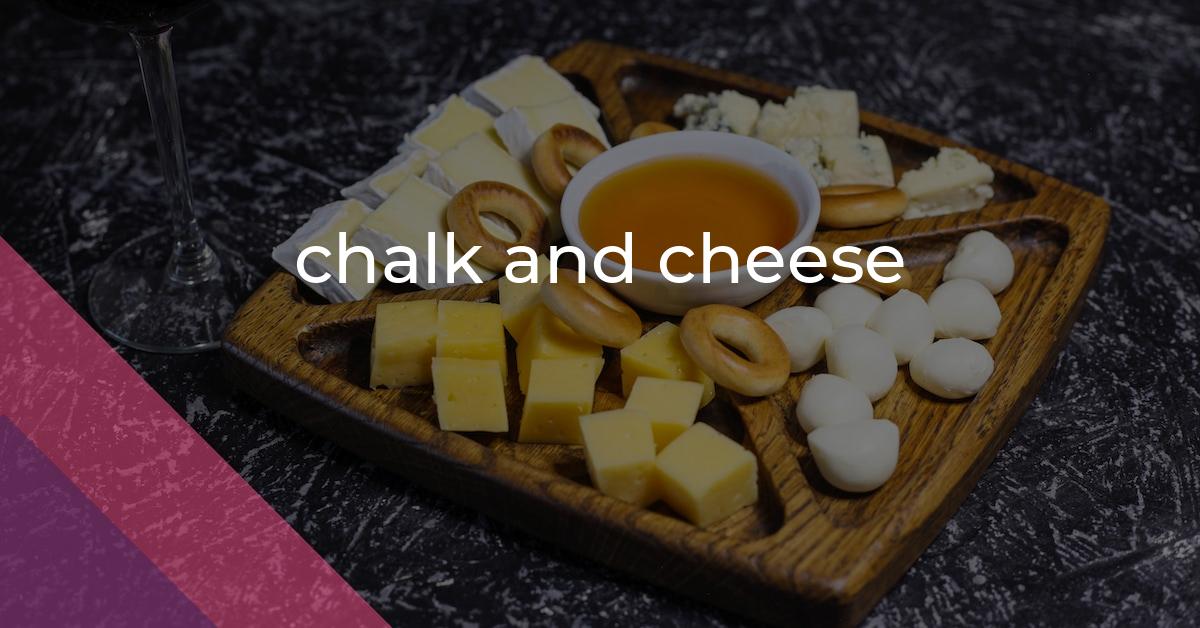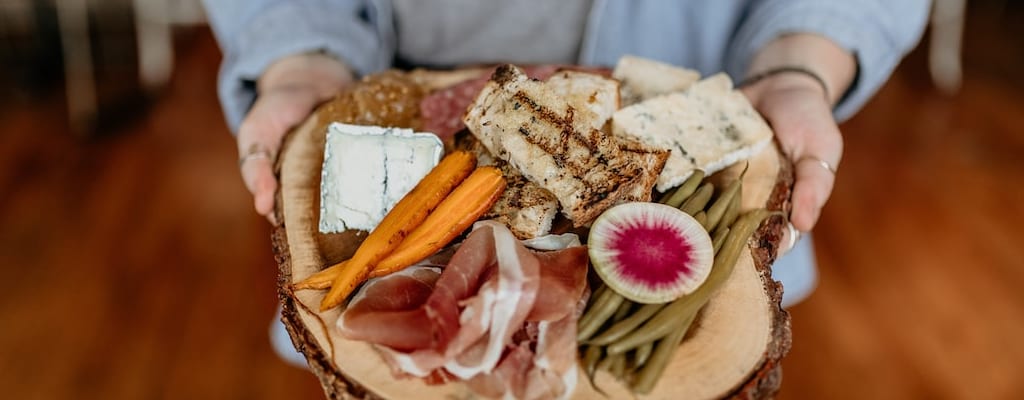chalk and cheese: Idiom Meaning and Origin
What does ‘chalk and cheese’ mean?
The idiom "chalk and cheese" is used to describe two things or people that are completely different and have nothing in common.

Idiom Explorer
The idiom "let alone" is used to emphasize that one thing is even more unlikely or difficult than another. It is commonly used to show contrast or to explain that something is too extreme or extreme for consideration.
The idiom "in black and white" means something is written or documented clearly and explicitly, leaving no room for ambiguity or interpretation.
The idiom "horse of a different color" refers to a situation or topic that is completely distinct or unrelated from the one previously mentioned or discussed. It implies a significant change or shift in focus, often catching people by surprise.
The idiom "head to toe" means completely or fully, often referring to being covered or dressed from head to toe in something.
The idiom "go without saying" means that something is so obvious or well-known that it doesn't need to be stated explicitly.
The idiom "go together" means that two or more things are harmoniously compatible or commonly associated with each other.
The idiom "good for nothing" is used to describe someone or something that is completely useless or lacking in any value or purpose.
The idiom "funny stuff" refers to something that is amusing, quirky, or strange. It is often used to describe situations, actions, or remarks that are humorous or out of the ordinary.
The idiom "for a change" is used to express a desire or need for something different, in order to break routine or try something new.
The idiom "fine line" refers to a very narrow distinction or difference between two things or situations.
Exploring Linguistic Disparity
The idiom "chalk and cheese" is a great way to describe two things or people that couldn't be more different from each other. It emphasizes a significant contrast between two entities, highlighting the stark differences in their characteristics or qualities.
The origins of this phrase are uncertain, but it is believed to have originated in England during the medieval period. The phrase likely came about due to the obvious visual and sensory disparities between chalk and cheese. Chalk is a powdery substance that is dry and white, while cheese is a dairy product with a variety of textures and flavors, known for its richness and diversity.
The idiom "chalk and cheese" has gained popularity over time and is frequently used in literature, especially in British English. It has also become a common phrase in everyday conversation, both formal and informal. People use this idiom to describe a wide range of situations, such as contrasting personalities or distinct tastes and preferences.
While "chalk and cheese" is primarily used in British English, it is still easily understood by American audiences. In the United States, a similar expression, "apples and oranges," is commonly used to convey the same idea of contrasting elements.
It's important to note that the idiom "chalk and cheese" is just one of many colorful phrases that exist in the English language to describe the contrast between two things or people. Another example is the expression "a little bit of bread and no cheese," which signifies a significant lack or absence of something. This phrase emphasizes the absence of cheese, a staple complement to bread and highlights the incompleteness or unsatisfactory nature of the situation.
The idiom "chalk and cheese" can also be related to the phrase "black-and-white," which is used to describe situations or issues that are clearly defined or easily distinguishable. The contrast between the colors black and white represents a stark division or a clear boundary between two opposing sides. By extension, "chalk and cheese" can be seen as a way to represent this concept of clear, contrasting differences.
The idiom "chalk and cheese" is a powerful metaphor that effectively conveys the idea of two things or people that are drastically different from each other. Its origins are unclear, but it has become deeply ingrained in the English language, particularly in British English. While primarily used in the UK, the idiom is still easily grasped by American audiences, who often employ a similar phrase, "apples and oranges." Additionally, related idioms like "a little bit of bread and no cheese" and "black-and-white" further illustrate the theme of stark contrasts. This idiom serves as a valuable tool for both writers and speakers to highlight the significant disparities between various entities.
Example usage
1. Sarah and her sister are like chalk and cheese. Sarah is outdoorsy and adventurous, while her sister is more introverted and prefers a quiet night at home.
2. The two candidates have completely different ideas and backgrounds. It's like they are chalk and cheese.
3. Jack and Peter are best friends, but they couldn't be more different. They are like chalk and cheese in terms of their personalities and interests.
More "Comparison" idioms



